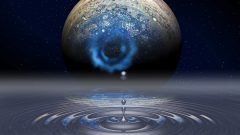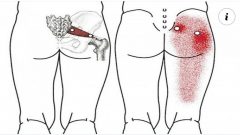WARNING!!! On Acid Oceans by Scientists

The oceans absorb about a third of the CO2 that’s being produced by industries and this causing the change in chemical properties of sea water.
After industrial revolution, acidity of the oceans has increased by about 25% and it is because of manmade emission, said Sir Mark Walport.
Carbonic acid is formed by the reaction between CO2 and sea water.
Sir Mark Walport also warns that if we are not controlling the rate of emission of CO2, ocean acidification will create substantial risk to complex marine food webs and ecosystems.
He said, today the rate of acidification is believed to be unmatched within the last 65 million years – and may threaten fisheries later on.
The consequences of acidification are made worse by the warming of the ocean expected with atmospheric change and is driven by CO2.
Sir Mark’s feedback come as recent British research suggest the effects of acidification may be even more pervasive than previously calculated.
Until now research have recognized varieties with calcium-based seashells as most in risk from changing chemical properties.
But scientists in Exeter have found that it affect other creatures also. As acidity increases it creates conditions for animals to take up more coastal pollutants like copper.
Results regarding the same
As a result of extra copper, the DNA damage is happening to angler’s favorite bait – the humble lungworm. It damages their sperm cell, and their offspring don’t develop effectively.
“It’s a bit of a shock, seriously,” said scientist Ceri Lewis from Exeter University, one of the report’s authors. “It indicates the consequences of ocean acidification may be even more serious than we formerly believed. We need to look with new sight at factors which we believed were not insecure.”
The lugworm research was already published in Environmental Science and Technology. Another research from Dr Lewis not yet reviewed indicates that sea urchins are also suffered by the effect of copper. This adds to the destruction they will experience from increasing acidity as it requires them more and more energy to calcify their seashells and spines.
This is important because the life of sea urchins is about 100 years, are a keystone species – grazing algae off stones that would otherwise be covered in natural slime.
The change in chemical properties of ocean mostly affects the Urchins, the unfortunate group of creatures.
Small creatures like plankton and coccolithophores recreate so fast in the bottom of marine animal chain and their future offspring likely to evolve to deal with lower pH.
But the long-lived urchins are too easy to control their own body system and will find it more complicated to evolve. They’re likely to be in problems, along with molluscs like mussels – which provide food for predators and also execute important services to the eco-system.
Even though boulder corals may survive the changes, but many of the branching and table corals which offer protection for tropical fisheries are assessed unlikely to last out the century.
Recovery
Recent studies by UN’ s convention on biodiversity warned that once the marine life is affected by acidification, it can take many thousand of years for recovery.
According to Dr Lewis, it was easy to predict the future chemical changes to the ocean. Prediction of future pH drawn few of the criticisms levelled at the much more complicated models of global warming.
She also warned that the scientific results of chemical change in the oceans are harder to predict.
In her Exeter lab she is currently subjecting ill-tempered crabs to the end-of-century challenge. She plunges her hand into a seawater container to seize the shell of one feisty specimen that does not want to be shifted. It holds the mineral water feedpipe with a vicious-looking pull.
She said about her work that “We are under-estimating effects of acidification for coastal invertebrates. But now we are realizing there are many indirect impacts of ocean acidification on other processes. It could be that we are facing a lot more surprises ahead.”
She has a mission to explain the science of ocean acidification to the students. For that she wrote to government of educational department with other scientists to guarantee a place for oceans in school science.
She is saying that “It’s unacceptable that students can go through their entire school science career learning nothing about the oceans which cover 70% of the planet. Ocean acidification is a fact – children should know that.”








Facebook Comments